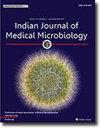Accelerating pneumococcal protection in India: The case for rapid adoption of PCV20 across pediatric and adult populations
IF 1.4
4区 医学
Q4 IMMUNOLOGY
引用次数: 0
Abstract
Background
Streptococcus pneumoniae poses a significant public health burden, particularly in India, where invasive and non-invasive forms contribute to high morbidity and mortality. Rapid disease progression and limitations of antimicrobial therapy underscore the need for preventive strategies. Pneumococcal vaccines, especially the 20-valent conjugate vaccine (PCV20), offer robust protection against diverse serotypes, reduce nasopharyngeal carriage, and promote herd immunity.
Objectives
To understand the epidemiology of the pneumococcal disease and establish the evidence for the use of higher valent pneumococcal conjugate vaccines in Indian adults.
Content
This paper describes the epidemiology of pneumococcal disease, urgency of pneumococcal vaccination, serotype replacement dynamics, and the advantages of PCV20 over PPSV23. In India, delayed vaccine adoption and unique serotype profiles necessitate targeted strategies, including catch-up campaigns and enhanced surveillance, to achieve herd immunity and mitigate the disease burden within 5–10 years.
加速印度肺炎球菌保护:在儿童和成人人群中快速采用PCV20的案例。
背景:肺炎链球菌造成了重大的公共卫生负担,特别是在印度,那里的侵入性和非侵入性形式导致高发病率和死亡率。疾病的快速进展和抗菌治疗的局限性强调了预防策略的必要性。肺炎球菌疫苗,特别是20价结合疫苗(PCV20),提供针对多种血清型的强有力保护,减少鼻咽携带,并促进群体免疫。内容:本文描述了肺炎球菌疾病的流行病学、肺炎球菌疫苗接种的紧迫性、血清型替代动态以及PCV20相对于PPSV23的优势。在印度,疫苗采用的延迟和独特的血清型特征需要有针对性的战略,包括追赶运动和加强监测,以实现群体免疫并在5-10年内减轻疾病负担。
本文章由计算机程序翻译,如有差异,请以英文原文为准。
求助全文
约1分钟内获得全文
求助全文
来源期刊

Indian Journal of Medical Microbiology
IMMUNOLOGY-
CiteScore
2.20
自引率
0.00%
发文量
154
审稿时长
73 days
期刊介绍:
Manuscripts of high standard in the form of original research, multicentric studies, meta analysis, are accepted. Current reports can be submitted as brief communications. Case reports must include review of current literature, clinical details, outcome and follow up. Letters to the editor must be a comment on or pertain to a manuscript already published in the IJMM or in relation to preliminary communication of a larger study.
Review articles, Special Articles or Guest Editorials are accepted on invitation.
 求助内容:
求助内容: 应助结果提醒方式:
应助结果提醒方式:


